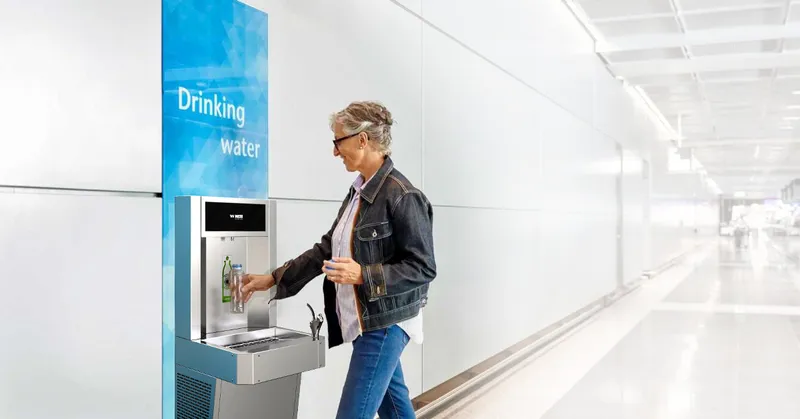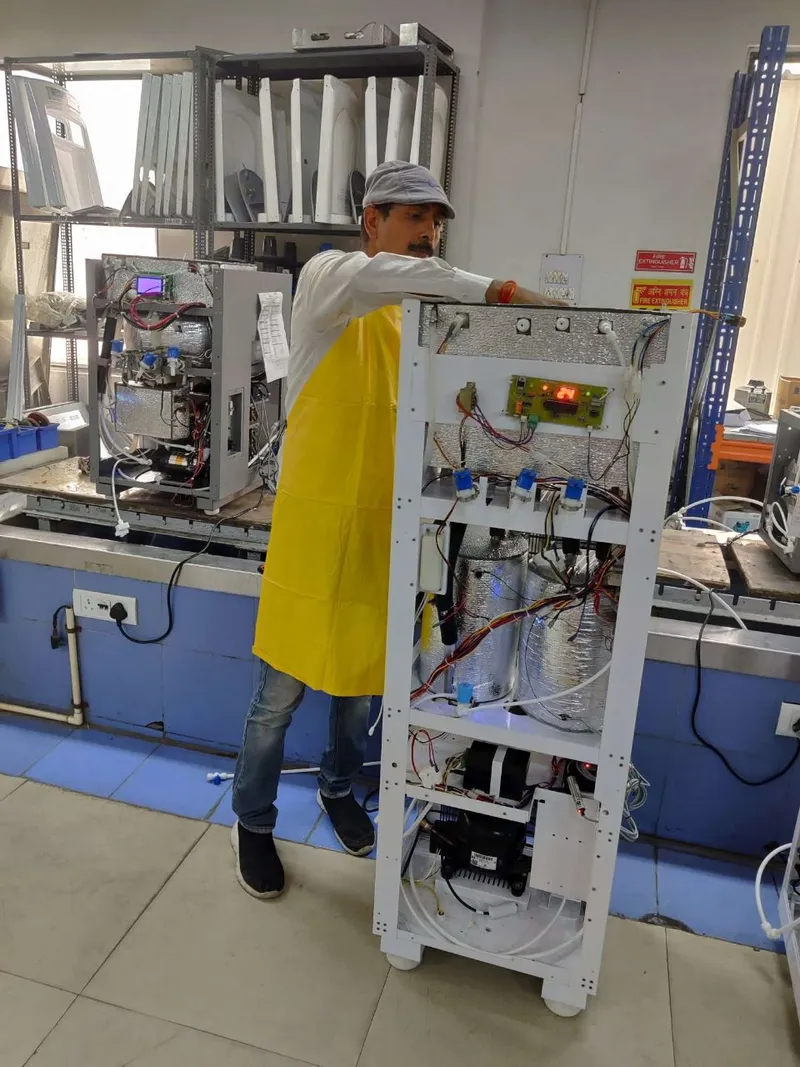The WAE Ahead: How this Noida-based company is helping businesses go green
Water, Air, and Energy (WAE) Limited helps businesses reduce their carbon and water footprints by providing goods and services that eliminate the use of bottled water.
When Anupam V Joshi looked to set up a company nearly 14 years ago there was a clear strategy—to enter the water purification business. “When I started it, it was an opportunity. There was nothing about sustainability in my mind. It was all commerce,” he recalls in a candid chat with SMBStory.
In the year 2008, the water industry was different. Most of Anupam’s competitors were looking at households with little focus on corporates and offices, who were left to rely on plastic bottles or plastic jars. In the corporate world, these bottled water companies reigned supreme, Anupam recalled.
“It made sense to target corporates… there was a tremendous gap and there seemed to be an opportunity,” he said.
Today, Anupam’s company Water Air Energy () Limited has a slew of water purifying solutions for corporates ranging from drinking water stations to water coolers and chillers.

WAE product
This Noida-based startup is an original equipment manufacturer (OEM) that provides water-related goods and services. It also offers products that are sustainable helping companies lower their carbon and water footprints.
Depending on the type of bottled water the firm uses, WAE asserts that it can cut down this cost of water for businesses by half. Anupam admits most companies are hesitant to hear his proposals at first.
“There was a lot of resistance from both the customers and facility management teams since they thought they were already in a stable system and they were not aware of the quality and deliverance of the machines,” he says, adding that the draw of being able to strip down water costs is what drew them to WAE.
The startup began by slowly targeting the finance sector, landing Citi Bank as its first client. Since then, it has grown and counts HDFC Bank, Deutsche Bank, TCS, Google, and Microsoft among others as clients.
As an alternative to bottled water, the company's focus shifted from being a machine manufacturing firm to striving to eliminate the use of plastic and conserve water. In this journey, it came across a number of problem areas—cost, the environmental impact of bottle usage and the health consequences of single-use plastic.
This is when it positioned itself as a company with sustainability as a focus.
“It took one to one and a half years to convince companies when we started. This time has now come down to two months,” says Anupam.
WAE also received the CII-ITC Sustainability Award in 2019—an award granted by the CII-ITC Centre of Excellence for Sustainable Development to companies who are attempting to be sustainable and inclusive in operations.
Taking on a battle against plastic
Plastic waste is everywhere—from the deepest of oceans to the guts of birds and animals. Naturally, the enormous carbon and water footprint of plastic also comes into question.
The process involved in making plastic requires several gallons of water from extraction to the manufacturing processes of oil and natural gas, giving a single bottle of water a very high footprint. A typical single-use bottle requires approximately 1.4 gallons (5.3 liters) of water, data from Water Footprint Network shows.

WAE Unit
WAE claims that it is sustainable in its manufacturing practices and in the process no water is wasted. It can purify water from any source irrespective of the TDS (total dissolved solids) level, and its equipment is 80% recyclable. Plastic fittings are used only in places where they cannot be replaced.
The integration of its machines sets it apart from the rest, says Anupam. In its products, the purified water can be in any form—hot, cold, ambient, or sparkling, depending on the consumer.
Since the products are made up of steel, steel derivatives and fibre they also have a long shelf life. The cost of installation varies from Rs 50,000 to Rs 2.5 lakh depending on the type of raw water at the site, plumbing, and other technical requirements.
WAE’s strength is also in customisation. For instance, if an architect’s office wants filters in galleries and kitchens or in a specific colour, the company can cater to this demand.
“Customisation is our forte, we have a very strong design team,” says Anupam.
It receives a lot of business from referrals made to clients by market intermediaries including architects, project management firms, and facility management firms.
As for how the machines look, most of them are plain and sturdy, inspired by counterparts in Japan and Germany. “My product is the water and not the machine,” says Anupam.
The story of Ahmedabad-based manufacturer of sustainable denim and other top SMB stories of the week
What’s next for WAE?
Thus far, the company does not recieve external investment. A definite stream of income comes every month from the equipment it has leased. WAE claims to clock in a turnover of Rs 19.12 crore with a growth of 41% from last year. On revenue targets, Anupam says “We grow around 50% every year. We are pushing ourselves to grow more than that.”
Currently, household space accounts for a larger piece of the water purifier market pie. The Indian water purifier market is expected to exhibit a compounded annual growth rate (CAGR) of 10.27% during 2022-2027.
The company also plans to foray into air purification and the food vending machines business in the coming years. “In one or two years, we may go for private equity or a public issue,” says Anupam.
Edited by Akanksha Sarma







